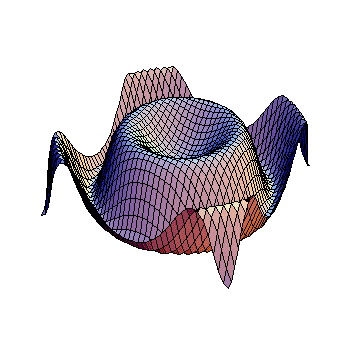How do you find all the real and complex roots of #x^7 + 128 = 0#?
2 Answers
#x^7+128 = prod_(k = 0)^6 (x + 2cos((2kpi)/7) + 2isin((2kpi)/7))#
Hence roots:
#x = -2cos((2kpi)/7)-2isin((2kpi)/7)#
where
Explanation:
#x^7+128 = x^7+2^7#
By De Moivre's formula we find:
#(cos((2kpi)/7) + i sin((2kpi)/7))^7 = cos(2kpi) + i sin(2kpi) = 1#
for any integer
So the
#cos((2kpi)/7) + i sin((2kpi)/7)# where#k=0,1,2,3,4,5,6#
Hence we find:
#x^7+2^7 = prod_(k = 0)^6 (x + 2cos((2kpi)/7) + 2isin((2kpi)/7))#
Explanation:
We have
Numerically we know that
(Where
But the thing is, whenever we take the nth root of a number, we bissect the circle of
That means that we can derive that the general form of the roots are
Which we can easily check back using De Moivre's formula, since
For any of the mentioned
And since


